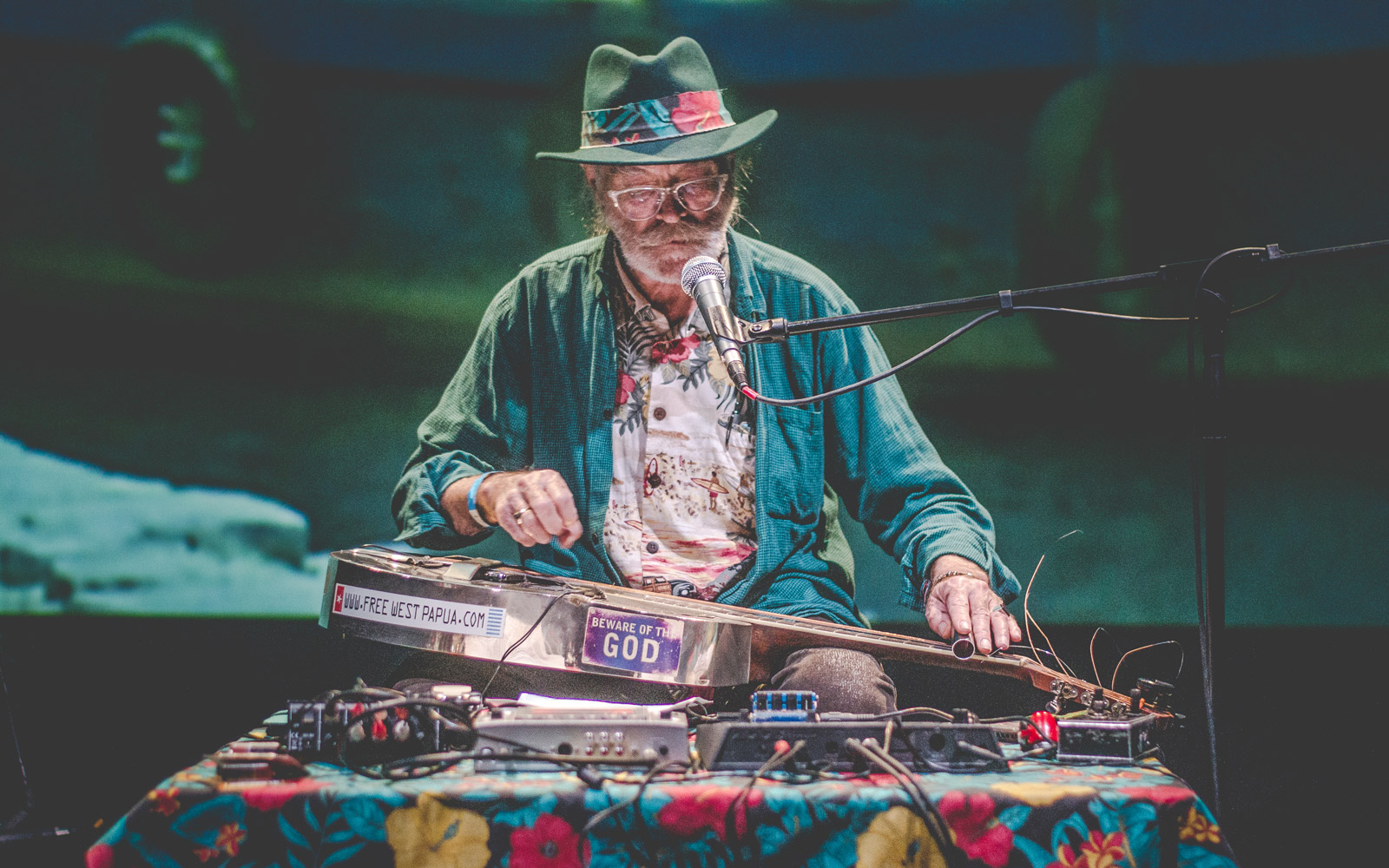
Mike Cooper has recently returned from a seven-week tour of Asia and Australia, playing gigs that had been canceled during COVID-19 lockdowns and rescheduled. “Clearing up the inbox,” he says. Since his departure from commercial recording in the mid-’70s, the British experimental folk musician has maintained an incredibly varied, prolific output. “I always have stuff I’m working on,” he says. “I also make video and a bit of film now and again, and I’m a visual artist. So if I haven’t got any musical stuff going on I’m usually involved in one or two of those activities. And then there’s always new music to do of course, which is coming all the time, fortunately. I always keep busy.” His landmark 1974 album, Life and Death in Paradise, was reissued this month.
Cooper is sitting on his shaded patio wearing a straw hat, clear frame glasses, a tawny-white beard and a Hawaiian shirt, speaking over Zoom from his home in Valencia, Spain. He’s going out after the interview, he says, to a performance art piece at the Centre del Carme, an art space nearby. He and his partner left Rome, where they’d been living for years, at the end of 2019, and arrived in Valencia just in time for the pandemic lockdown. There, in his small home studio, he’s been shacked up, writing and recording new material.
“I call it a studio,” Cooper says. “It’s a room, really. I’m a very lo-fi person, and I have been for many years. I just use a computer, whatever interface I need to get it into the computer, and a variety of instruments. Keyboards and what have you. But basically, I record everything. I hate studios. I haven’t used a proper commercial studio for many years.”
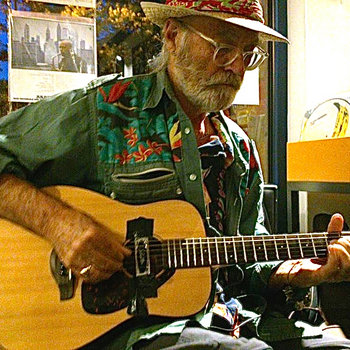
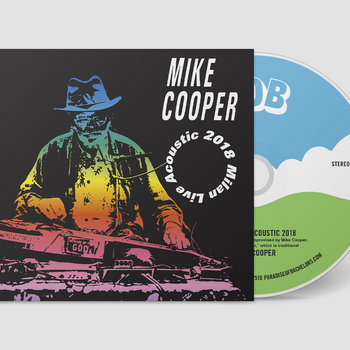
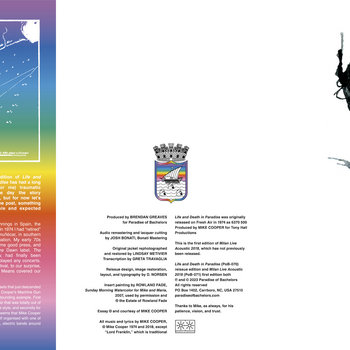
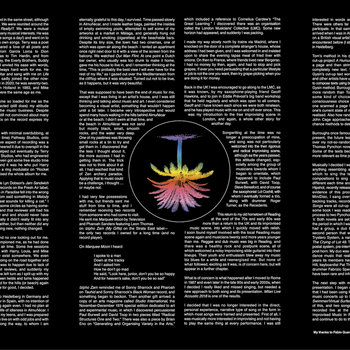
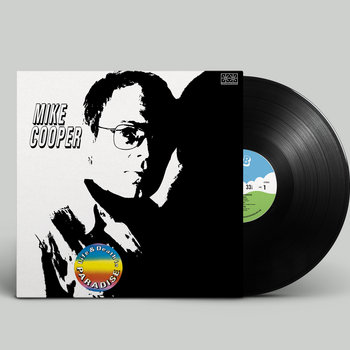
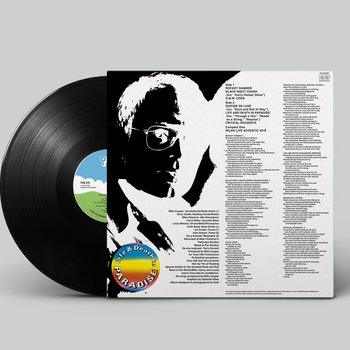


Vinyl LP, Compact Disc (CD)




Life and Death in Paradise is the first major new reissue of Cooper’s ‘70s work since Trout Steel and Places I Know/The Machine Gun Co., all reissued in 2014. Accompanied by the first release of one of Cooper’s rare live sets of solo acoustic songwriter material from 2018 (included as a bonus CD), Life and Death in Paradise is Cooper’s last album of song-based material with a personal or narrative bent before making a hard turn firmly into the experimental. At times firmly songs, and at other times improvised country blues melodies, it’s an inward-looking masterwork.
The opener, “Rocket Summer,” like the songs on Trout Steel (inspired by Richard Brautigan’s Trout Fishing in America) was born of Cooper’s “esoteric” choice in literature—in this case, a sci-fi book called A Voyage to Arcturus. Aside from its narrative of interstellar travel, it’s filled with “lots of references to sound and color” which were attractive to Cooper.
Consisting of only six songs, Life and Death in Paradise uses Van Morrison’s Astral Weeks, released two years before Trout Steel, as a template. “I always imagined how that record was made,” Cooper says. “I imagined they were in the studio all playing together. A jam session, basically. That was how I always wanted my records to be, and that’s pretty much how they turned out.”
Cooper usually went into the studio with some vague musical ideas, a general sound-shape or melody loosely sketched, and would have it filled in during the session. “That was the way I could work with those people,” he says. “I had a little idea, and I would throw that in the pot. They’d throw their stuff in, stir it around, and we’d get down and play some music. Musically, from my point of view, what I’m doing is quite simple stuff. The essence of the pieces are what other people do with them.”
Life and Death in Paradise was recorded live, with some of Cooper’s vocals or another player’s horn solo overdubbed later, at Mike Finesilver’s Pathway Studios. “I’d leave room for someone to do something,” Cooper says—for instance, an isolated acoustic cavity, between verses, on “Critical Incidents,” for Alan Gowen’s piano breaks—but there was “not a lot of overdubbing. I mean, I wasn’t into, ‘Let’s do the bass and drums and then I’ll put the guitar on.’ Takes too long. The essence of the thing disappears.”
These songs featured more drawn-out melodies, allowing Cooper to add vocal improvisations—lengthening out vowels, adding nonsense syllables—which lend outsized strength and power. In the repetition of a desperate, sorrowful line—
I started taking chances
On so many new romances
I started going places
That I, I should not be
…and it’s a long, it’s such a long, long way home (“O.M.M. Coda”)
—Cooper suggests an inner monologue of doubt pushed away and the lengthy journey to resolution.
The Life and Death in Paradise reissue’s bonus CD, Milan Live Acoustic 2018, is an oblique return to Cooper’s songwriter era. Recorded live at a fashion designer’s studio in Milan, with a small invited audience, the set finds Cooper improvising on steel guitar; changing tunings at random, mid-tune; generating electronic noise through a Crackle Box; playing field recordings of birds and insects through his iPhone; singing lyrics created from cut-ups of Thomas Pynchon novels. Minimally miked, Cooper performs essentially acoustically, in the same way he did during the ‘60s. Most of the folk and blues venues of that time had no PA or mics of any kind. The Milan set, Cooper says, “was basically like a folk club, which was great. I almost went full circle, back to the kind of situation that I started off playing in.”






Vinyl LP, Compact Disc (CD)




Black Flamingo is Cooper’s most recent piece of new music. It was recorded mostly over the past year, with some of the material spilling over from sessions for 2022’s Oceans Of Milk And Treacle. “A lot of the same people are on it,” Cooper says. “I’ve gathered this team of collaborators. Some from my past, some from my present, and some I’ve never even met.”
He and his creative partners use file sharing to swap recordings—overdubbing parts, responding to and improvising over different tracks, and arranging things virtually. It’s a long way from recording live in the studio, and it retains the spirit of Cooper’s improvisatory approach: “The improvisation word is the key to it,” he says. “I wasn’t interested in short, sharp pop songs. I was interested in longer pieces, because it gave me and the musicians more room to do something interesting—stretch out and extend these things. It was more like a jazz piece that way.”
Now, as always, Cooper is still playing and recording live and at home, writing and making, working in a measured method across various art, music, and audiovisual projects. He has a forthcoming photo book, called Photografix, of photographs he took during the ‘80s, traveling around, accompanied, on each page, by a QR code which, Cooper says, if scanned, will link to music. “That’s all I’ve got coming out that’s in the process of being produced at the moment, but I’ve no doubt something else will occur. I’ll probably make about 13 Bandcamp records in between now and next year,” he says, “as is my wont.”







